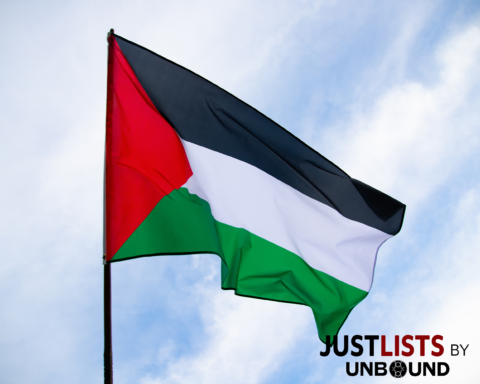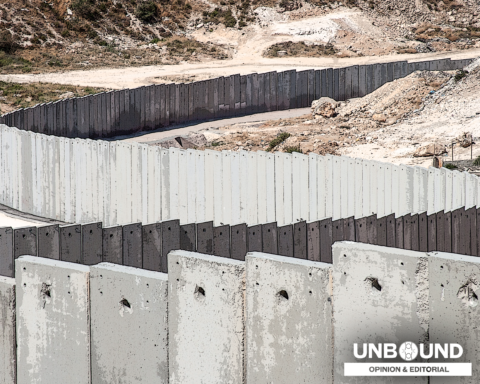
“A shoot shall come out from the stump of Jesse, and a branch shall grow out of his roots.” -Isaiah 11:1
My 81-year-old mother worries every time I go because “It’s just not safe over there.”
“Ma,” I respond, “according to the statistics it is more dangerous for me to ride my bike 30 miles a day on the roads of Ft. Myers, Florida.” But ultimately, the statistics are irrelevant. Because I’m going regardless.
What you learn when you participate in the YMCA Keep Hope Alive Olive Tree Program is that in the Occupied Palestinian Territory, as well as Gaza, it is dangerous to be one of two things: an olive tree and a Palestinian.
I have had the privilege and pleasure of taking two groups to Palestine in the past year and a half: One to plant olive trees in February 2014 and one to harvest olives in October 2015. Most of the people came from Covenant Presbyterian in Fort Myers, FL, where I serve as pastor. Some came from elsewhere in the United States after hearing about the trip from the PC(USA) Keep Hope Alive (KHA) program that has now become a joint effort between First Presbyterian Church of San Anselmo, CA and our denomination’s Israel Palestine Mission Network. The total number of participants on these trips was 27 (13 & 14 respectively), with 4 who went on both trips. The Olive Tree Program is itself a shared effort of the Joint Advocacy Initiative (JAI) of the East Jerusalem YMCA and the YWCA of Palestine.
___________________________________________
In the Occupied Palestinian Territory, as well as Gaza, it is dangerous to be one of two things: an olive tree and a Palestinian.
___________________________________________
What almost everyone had in common before going on a KHA trip for the first time was how little they knew. I prepped them for the kinds of things they would see and hear, but avoided overloading (held back quite a bit) because I wanted them to have the experience and make their own determinations. I made sure they knew that this would not be a standard holy sites visit, although there would be some of that as well. One participant on our first trip, whose opinions I had wondered about, told me by day 5: “It doesn’t take a genius to figure out what’s going on here.”

It wasn’t just a trip to Palestine. Our first stop both times was to Nazareth in Galilee. In addition to visiting the typical tourist sites, we spent a morning in the office of the Arab Association for Human Rights. This is where our groups learned that if you are Palestinian in Israel you are a “citizen” of the nation. If you are Jewish, no matter where you come from in the world, you are a “national” which is the highest echelon in the hierarchy determining status in Israel. For all intents and purposes, if you are not a national, you are of second-class citizenry status. One of the lawyers on our most recent trip litigated civil rights for the Justice Department in Mississippi and Alabama in the late 1960s. He understood this situation immediately. He saw Jim Crow, accomplished in a more subtle manner.
Israeli law is clear that all nationals and all citizens enjoy equal rights. But it is also true that preferential treatment is given to those who have served in the Israeli military. Nationals must serve in the military (except for Orthodox Jews, who don’t need to show military service and still receive all societal benefits) while most Palestinians cannot. This means that on all applications for jobs (including certain political and governmental positions), subsidized housing, and countless others benefits and social amenities, which are theoretically available to all citizens, it is not possible to qualify if one has not served in the Israeli military…which translates: if one is a Palestinian.
___________________________________________
One of the lawyers on our most recent trip litigated civil rights for the Justice Department in Mississippi and Alabama in the late 1960s. He understood this situation immediately. He saw Jim Crow, accomplished in a more subtle manner.
___________________________________________
Even so, the fact that Israeli Palestinians can serve in the Knesset is often mentioned as proof for this claim of equal rights for all Israeli citizens. They say that Palestinians are indeed represented in elected governance. What they don’t tell you is that Palestinians serving in the Knesset have never been part of the governing coalition for the entire history of Israel. They are mainly window dressing. My lawyer friend said: “I didn’t know what I didn’t know.”

While in Galilee we visited the evacuated villages of Kafr Bir’im (2014) and Iqrit (2015), both near the Israel-Lebanon border. Their stories are virtually the same: these were Palestinian villages (among over 500) that bore the brunt of the ethnic cleansing of Palestinians in Israel following implementation of the U.N. partition plan. The Israeli military destroyed all the homes but left the Christian church in town (Maronite in Kafr Bir’im, Roman Catholic in Iqrit) intact. To this day, third-generation Palestinians whose grandparents and parents came from those villages keep a 24/7 vigil on the church grounds. They come from their homes in other villages and cities and camp out according to the schedule.
The young man keeping the vigil in Iqrit while we were there is a Haifa University bioengineering student. He keeps up his part of the schedule rotation because this is where his people come from. The saying in Iqrit is that you can be baptized as a child in the church there and you can be buried in the graveyard when you die, but between those events you have to live elsewhere. Both groups that visited these destroyed villages were deeply moved by the sight of them, as well as by the testimony they heard from Israeli citizens who cannot live there for the simple reason that they are Palestinian.
___________________________________________
If it was not for PC(USA) participation in this program, there would be little-to-no American presence at all.
___________________________________________
In Palestine we gathered at the Sahara Hotel in Beit Sahour, right next to the Shepherd’s Field, with many other olive tree program participants from all over Europe and as far away as Australia. Although we U.S. Presbyterians were the largest single group both times, as Americans we were by far the smallest percentage of planters or pickers in the program. If it was not for PC(USA) participation in this program, there would be little-to-no American presence at all. Those from elsewhere in the world seemed surprised that some of us knew what was really going on in Palestine, and for those among us who yet did not, they were more than patient and willing to help them see and understand. When I personally talked about the Israel Palestine Mission Network, many immediately recognized the name and knew about our work.

Photo: Erin Dunigan
After our second trip to participate in the harvest, I realized that many of these Europeans keep coming back, over and over again. They make the planting or the harvest an annual event. Some come with groups, most come individually. They even bring their children to learn what doing justice looks like. They come from both churches and secular society; they are religious, agnostic and atheist; and they come because they know this brings hope.
Our presence does help to keep hope alive. When we stand in a field where the farmer points out the dead, fire-blackened olive trees, those that have been poisoned, or the ones that have been chain-sawed by Israeli settlers, our presence helps keep hope alive. When we stand in the planting fields while the Israeli military stops work for an hour to check the Palestinian farmer’s ownership papers (which the commander already knows are valid – he does it just to let them know who is in charge) our presence helps keep hope alive. The day they told us to stop planting and eventually kicked us off a field they knew the farmer owned, our presence helped keep hope alive.
___________________________________________
When we stand in a field where the farmer points out the dead, fire-blackened olive trees, those that have been poisoned, or the ones that have been chain-sawed by Israeli settlers, our presence helps keep hope alive.
___________________________________________
When Israeli settlers wander over onto the Palestinian fields uninvited in order to verbally harass the farmers, as well as those of us there to plant or pick, our presence helps keep hope alive. When we enter a valley to harvest olives and we see the streams of raw sewage flowing into the Palestinian agricultural fields from the Israeli settlements sitting atop the surrounding hills – the farmer points it out with tears in his eyes – our presence helps keep hope alive. When we drive into one of those pristine settlements, see the green grass and beautiful gardens in the midst of brown desert, along with the swimming pools filled with glistening water, and then hear the story about how Palestinians have to suffer the humiliation of being rationed their own water because the rest is being stolen in the grossest of ways, our presence helps keep hope alive.

Photo: Presbyterian Peacemaking Program
When we have lunch in a Bedouin tent and the young woman in a bright pink hijab hosting us tells us they will eventually be forcibly removed from that location before asking what I.T. ideas we might have to help them bring income to the village, our presence helps keep hope alive. When we stand in the midst of separate non-violent protest marches, first in Nazareth in Israel and then in Bethlehem in the Occupied West Bank, and watched Israeli soldiers deliberately move in to make sure they do not remain non-violent, when our own eyes, sinuses and lungs are accosted by the tear gas wafting all around us, our presence helps keep hope alive.
After both trips, the people from Covenant Presbyterian Church surprised me in the ways they continued what they now see as their new mission in the life of our congregation. They keep telling fellow church members (even those who don’t really want to hear) what they saw. They write letters to their senators and representatives, to the White House, and to the local newspaper. When someone responds to their letter to the editor by saying they do not know what they are talking about, they have each other’s backs. Others write new letters to tell the community they indeed know what they are talking about because they saw it with their own eyes and stood in the midst of it. Then they send Facebook messages back to Palestine to tell their new friends that they remember them and will not stop witnessing to what they experienced. Perhaps more than anything, this, too, helps keep hope alive.
*****
AUTHOR BIO: Rev. Jeffrey DeYoe is the pastor of Covenant Presbyterian Church, Ft. Myers, Florida and is the Moderator of the PC(USA) Israel Palestine Mission Network.





Unbound Social